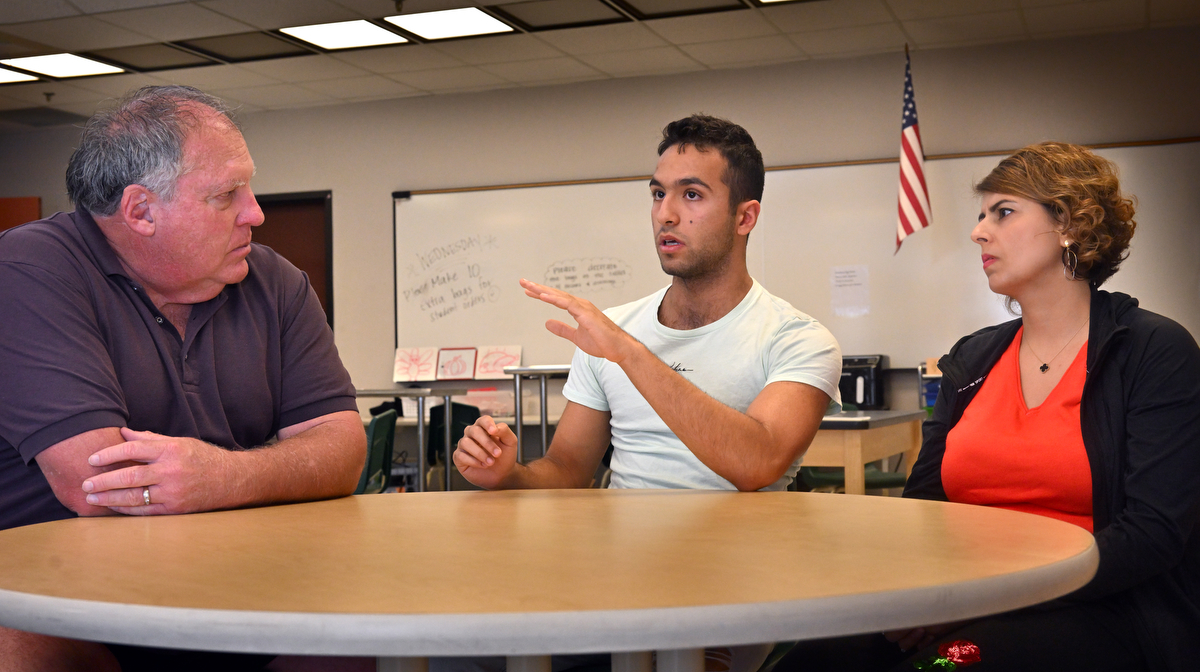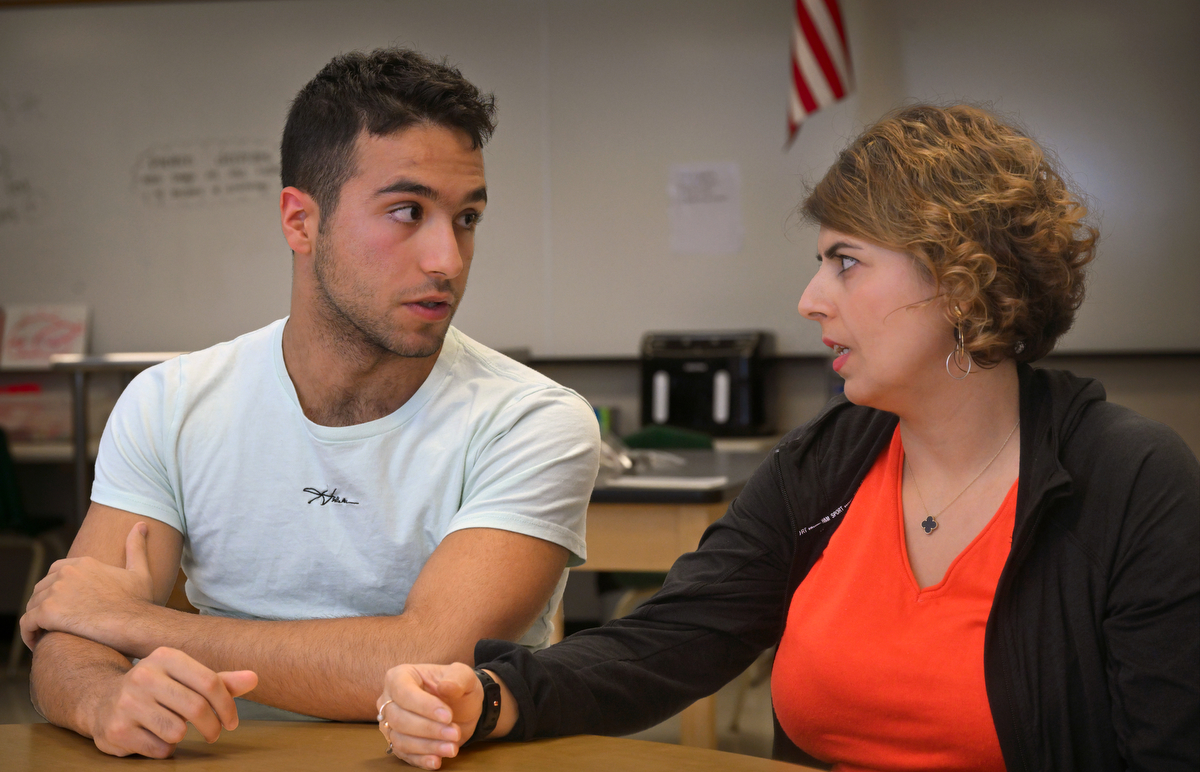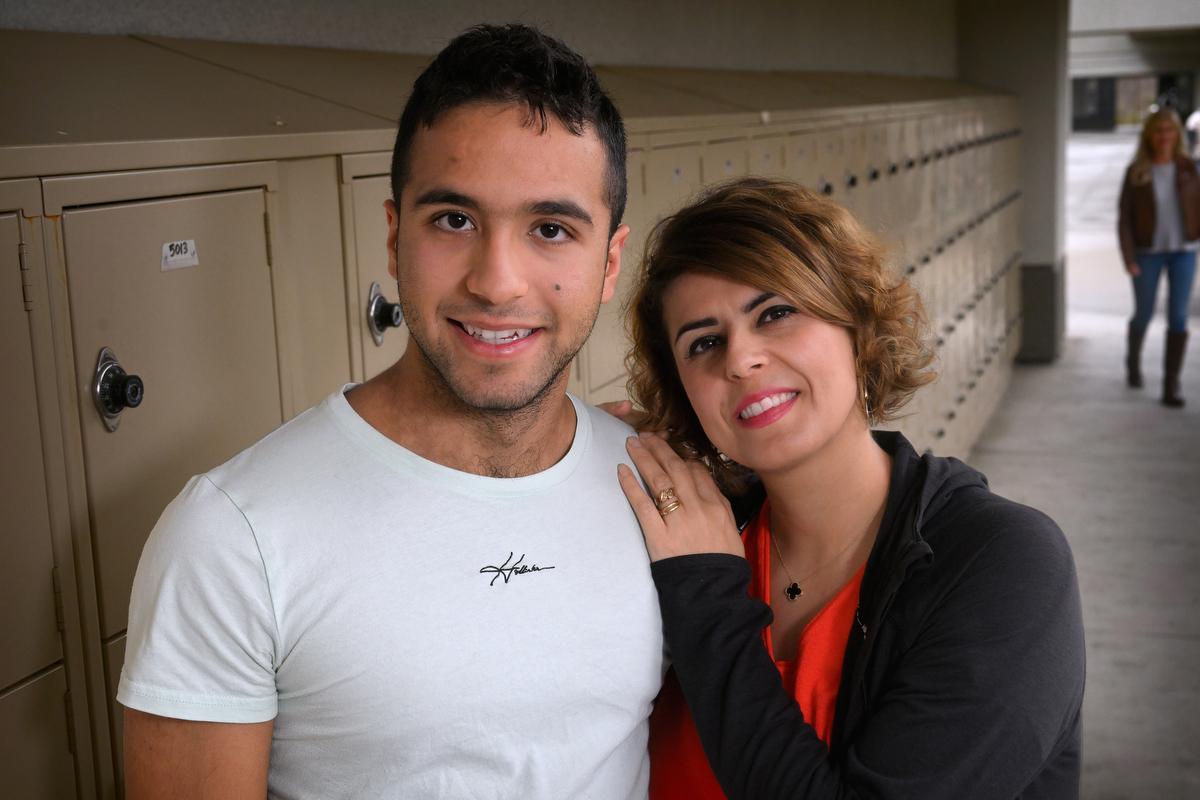By Greg Mellen
While two teachers pinioned his friend’s arms, the eight-year-old boy was ordered to punch his friend in the face.
This was the state education at the school in Iran at the time — particularly acute and onerous if you were a child with special needs. At other times, the boy and classmates were threatened with being left in the school overnight for failed homework or assignments. Physical punishment was not uncommon.
“The teachers are bullies. They scare children. It’s a lot like prison,” said Tesoro High senior Parsa Ezati of some of his early memories of education.
Ezati’s mother, Maryam Ashrafnohagar, remembers it this way.
“My country is bad to women and children,” the Christian mother of Persian ethnicity said about life in the Islamic republic.
That is why, nine years ago, when Maryam and her children were allowed to travel to the United States with a temporary visitor’s visa, they chose not to return.
“I don’t want to come back,” Maryam said. “It’s not safe for my children and me.”
After spending a couple of weeks with family in Orange County, Maryam and the children moved into a motel room where they lived, while Maryam was able to find work in the Persian community.
Parsa’s father, Torah Ezati, was allowed to leave and join his family about a year later and they moved into permanent housing in Las Flores.

Photo by Steven Georges/CUSD Insider
Transition and transformation
In the 2024-25 school year, Ezati, who is on the autism spectrum, will have the chance to enter college through the Adult Transition Program at Saddleback College in Mission Viejo. Thanks to Tesoro’s special education STEPS program (Structured Teaching Educating Prepared Students) he has gained opportunities his mother is convinced he would not have had otherwise.
“I’ve never had a student like him,” said Kevin Corbett, who has been teaching students with special needs at Tesoro since 2015, when he received his special education credential. “As a special ed teacher, I’ve seen too many stories of other countries where children are not given the opportunity to achieve.”
Although Iran diagnoses and educates children with disabilities and special needs, it can be haphazard. According to Humans Rights Watch, “Special schools that segregate children on the basis of disability do not guarantee children’s right to a quality, inclusive education.”
Due to stigma and social mores, special needs often go unreported. Human Rights Watch reported that of 14 million children registered in primary secondary schools in 2018-2019, only 150,000 of an estimated 1.5 million special needs children were registered as having special needs.
After moving to the United States, Ezati enrolled at Bathgate Elementary in Mission Viejo. The transition wasn’t smooth. Mayam and her kids did not speak English. Although Ezati speaks English well now and is gifted musically, he has developmental delays and was placed in special education.
“It broke my heart,” Maryam said. “It hurt that he was labeled.”
Any fears that her son would face the alienation and abuse he was exposed to in Iran were soon allayed.
In the Capistrano Unified School District, special education programs are provided for children ages 3 through 21 who qualify. Working with parents and the district, Individualized Education Programs (IEP) are created for each student’s unique needs.
The transition was difficult for Ezati. In addition to the language gap, he said “there were so many rules. I got in a lot of trouble. I didn’t know what was right and wrong.”
Maryam was stunned at the difference in atmosphere in American schools.
“Everything here was calm, not stressful,” she said.
Shining in high school
Since entering Tesoro, Ezati has blossomed. Ezati is “high-functioning,” well-spoken and was able to seamlessly translate from Farsi to English during an interview with his mom. He is also a gifted musician who composes and plays piano.
“He is the highest functioning student in a STEPS program,” Corbett said.

Photo by Steven Georges/CUSD Insider
Ezati played water polo for Tesoro for three years, sang for two years in the school’s renowned choir, and won awards for his musical talent.
For the second straight year, Ezati advanced to the district level in the national PTA Reflections arts competition, which attracts about 300,000 entries annually. Last year, he advanced to the state level. This year’s district judging is ongoing. Competing in Music Composition, Ezati has twice won Awards of Excellence in the Special Artist Division at the local level for students in all grades.
Ezati’s latest composition, “The Heart of the Soul,” follows “Battle of Emotion,” a haunting and evocative 3-minute composition on piano and violin that won last year.
He is also a talented filmmaker with a love for adventure films.
Ezati is also getting valuable work experience. He works part-time at 24-Hour Fitness, and recently became the manager of the Turbo Cafe, a kitchen operated by students in the STEPS program, which prepares 20 to 30 meals, as well as coffee and other items, for school personnel.
He also recently became the first STEPS student to pass the written test at the DMV to earn a learners’ permit for his California Driver’s license.
All about opportunity
While elements of leaving Iran have been difficult for Maryam, she feels she cannot return though she dearly misses her elderly father who is beginning to struggle with dementia. She has a sister in the country who works with kids on the autism spectrum and has tried to get her out of the country without success.
But it has all been worth it to see her son flourish and “to see all the things he’s been able to do that I don’t think he’d be able to do (in Iran),” she said.
No one has been more impressed by Ezati’s transformation than Corbett.
“When Parsa came here, he was quiet and all by himself,” Corbett said. “Our mantra is to look for what they can do, not what they can’t.”
For the boy who no longer has to act out his teacher’s brutal conceptions of justice, or worry about abuse or neglect, the horizons appear limitless.

